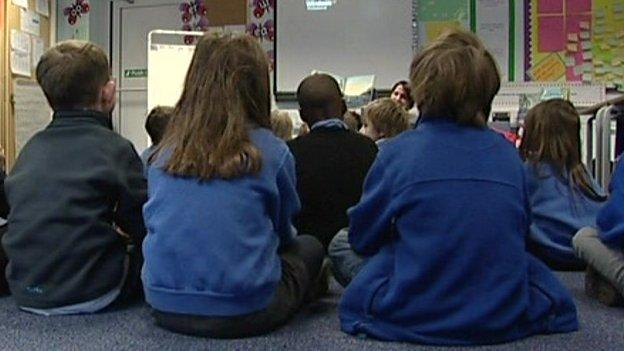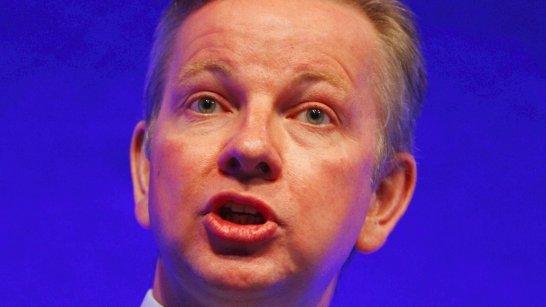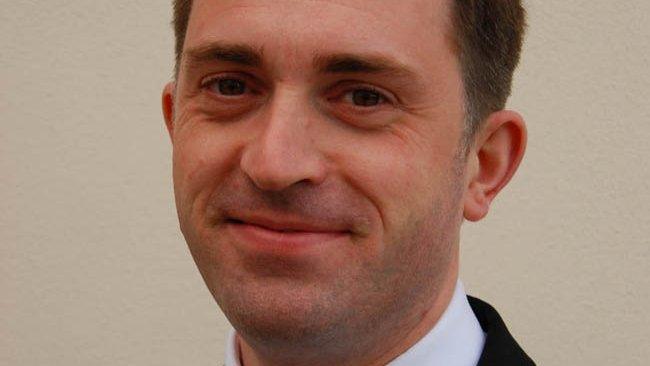Free school numbers to rise by 55, government reveals
- Published
Michael Gove: "It's a dramatic change in the pace of new school opening... More parents have the chance to send their children to high quality schools"
Fifty-five new free schools are opening this autumn, tripling the number in place across England, ministers say.
Education Secretary Michael Gove said he hoped the schools would be as successful as the 24 existing ones.
Free schools - a flagship government policy - are state-funded but not under local authority control and have more control over teaching and budgets.
Critics say too much public money has been spent on free schools that have faced delays or been abandoned.
Clarifying the numbers, a Department for Education spokeswoman said the 55 schools due to open this term include some that were delayed from previous years.
The spokeswoman also said that four other free school projects given the go-ahead by ministers for this year have now been scrapped and eight others have been postponed.
Free schools can be set up by groups of parents, teachers, charities, businesses, universities, trusts, and religious or voluntary groups.
The first ones opened last September and, in announcing the opening of 55 more this month, the Department for Education said a further 114 had been approved to open from next year.
Mr Gove said "Every child should have the choice to go to an excellent local school. These new schools have been set up by idealistic people who are determined to give parents the kind of choice that only the rich can currently afford.
"The first 24 free schools are enormously popular and I expect this second wave to be equally successful."
Mr Gove argues such schools offer choice for parents but the policy has brought some problems.
On Merseyside teaching unions are threatening legal action over the future of dozens of teachers whose contracts were terminated when the Hawthornes Free School replaced two local authority schools.
When the new school opened its doors on Monday morning up to 100 teachers had not heard whether they had jobs there.
In Bradford more than £200,000 had been invested in setting up a free school but just days before the start of term funding was withdrawn because the school had failed to attract enough pupils.
The charity behind the project, One in a Million, said it hoped the school would open next September instead.
Opening times
The Department for Education said all the free schools scheduled to open in September 2012 have opened on time.
Last week, shadow education secretary Stephen Twigg wrote to Mr Gove asking how many of the 79 new state-funded schools that had been due to open in September would do so.
Mr Twigg said at least £2.3m had been spent on three projects alone, two of which were abandoned and one of which is half empty.
He suggested the true figure spent on such schemes could be much higher because of what he called a "lack of transparency" over the way they are being funded.
Mr Gove told the BBC the 79 new schools included 13 University Technical Colleges (UTCs) also due to open in September 2012.
The remaining eight free schools and three UTCs are scheduled to open "later in the year" on a case-by-case basis.
He said: "Under the last government if you were opening a new school it would take anything up to three to five years to open. In fact, when they [Labour] had a parent promoted school that opened under their tenure... it took 10 years to open.
"Last year we opened 24 schools within one year, now 55 after two years, it's a dramatic change in the pace of new school opening."
Teaching unions also voiced criticism of the policy. Christine Blower of the National Union of Teachers said: "Michael Gove's vision for education is becoming increasingly unfair and chaotic. Dismantling our state education system and parcelling it off to unelected, unaccountable sponsors is a disgrace."
Chris Keates of NASUWT added: "At a time when the education budget has been dramatically cut, funding for free schools comes from top slicing the limited money available for other schools and their pupils."
- Published3 September 2012
- Published9 March 2015

- Published31 August 2012

- Published30 August 2012
